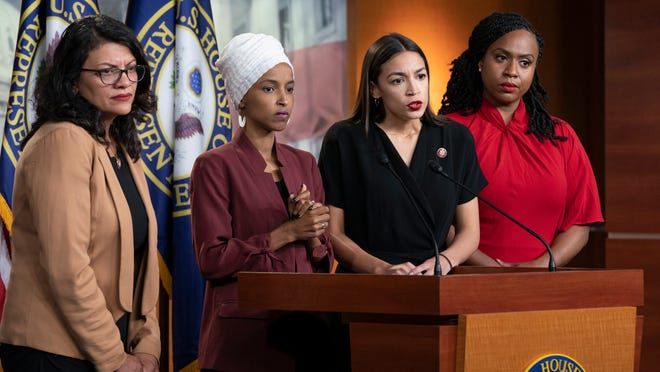Minorites in Congress
Minorities take big steps towards equality in Congress. Picture from USAToday featuring Representatives Rashida Tlaib, Ilhan Omar, Alexandria Ocasio-Cortez, and Ayanna Pressley.
November 12, 2020
A record number of minorities will serve in the 117th United States Congress.
Women will represent nearly 30% of the total seats. At least 131 women have been elected. Women are not the only minority to have broken records, a record number of Indigenous people have also been elected.
There will now be six Indigenous people at Congress, the most Indigenous people there have ever been. Washington will have its first woman of Korean descent representing them at Congress, she is only the second Korean-American to ever be elected to Congress. New Mexico is setting a new precedent by being the first state to only elect women of color to represent them.
Oklahoma is making history as well with its first Muslim representative, Mauree Turner. They are also the first nonbinary person elected in U.S. history. Delaware elected the first-ever openly transgender woman, Sarah McBride, to Senate. Kim Jackson’s win in Georgia makes her the first openly LGBTQ woman elected in the states’ history. Jabari Brispart is also the first openly gay black man elected to New York’s Senate. Ritchie Torres, also of New York, is also the very first gay Afro-Latino to ever be elected.
This election proves to be pivotal as women and other minorities break barriers and get closer to equality in Congress.

